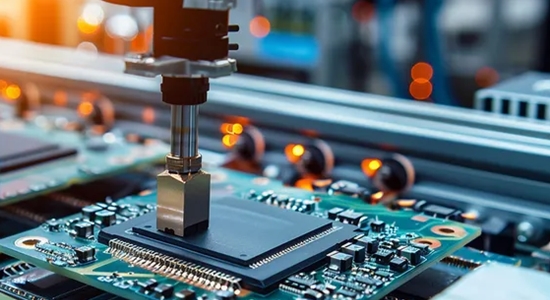
A June 18 committee press release bills the bill as “Reinforc[ing] U.S. Microchip Manufacturing Edge.” The words “China” and “security” are missing from the title; they are present in the main text. But the nature of the security concern is not quite satisfactorily elaborated there.
“American taxpayer dollars should not be used to purchase Communist Chinese semiconductor manufacturing equipment when the same tools are made in America,” said Senator Blackburn. “The Chip EQUIP Act is essential to ensuring that semiconductor manufacturing tools are not made or controlled by the New Axis of Evil—Communist China, Russia, North Korea, and Iran.”…
Today, nearly all the specialized tools and equipment used throughout the semiconductor manufacturing supply chain are made in the U.S. or allied nations like Japan and the Netherlands. However, demand is surging for Chinese-made semiconductor tools, and the PRC has announced that its new $40 billion investment in its own semiconductor industry will heavily focus on chip manufacturing equipment. In April, Huawei announced it was investing in new R&D capabilities to rival [those] of U.S., Japanese, and Dutch firms.
This legislation will amend the CHIPS and Science Act [a welfare act for American chip makers] to clarify that if a company takes funding from this law, projects using such funding can’t purchase specialized semiconductor manufacturing tools made by entities owned or controlled by adversaries such as China, Russia, North Korea, and Iran.
The statement that the new legislation would govern companies which accept funding under the Chips Act seems to imply that it would not govern makers of chip tech who decline such funding (if there are any such companies). But if prohibiting purchase of Axis-of-Evil chipmaking tools is justified and viable, why wouldn’t it apply to all companies in the industry, whether or not they accept Chips Act subsidies?
The press release also quotes Democratic Senator Mark Kelly, who refers to the need to “do everything in our power to stop China and other foreign entities of concern from compromising our microchip manufacturing facilities.”
Compromise how?
If there were no national security problem, there would be no argument for restricting economic trade. There is nothing wrong in itself with producers based outside of the United States having a comparative advantage over U.S.-based producers in the production of various goods. If markets are allowed to function at all, some producers, regions, or countries will naturally be better on average than others at producing a given good, whether bananas or superconductors or tools for making superconductors.
But the press release, issued June 18, 2024 by the Committee on Science, Space, and Technology, does not quite get to a consideration suggested by SC Media: “While the process of manufacturing chips might not seem to be a significant security risk, industry analysts said there is a possible inroad for foreign agencies to extract data via compromised chipmakers.”
The U.S. Commerce Department tackled the threat of the Chinese Communist Party from another angle in February 2023, when it issued regulations to prohibit chipmakers that receive funds through the Chips and Science Act “from expanding in China for 10 years.” Again: why, if the prohibition makes sense, does it not also apply to chipmakers who aren’t getting Chip funds (if there are any such companies)?
Also: what counts as “expanding” in China?
Also: why “10 years”? Is the threat of the Chinese Communist Party scheduled to fade in year 11?





